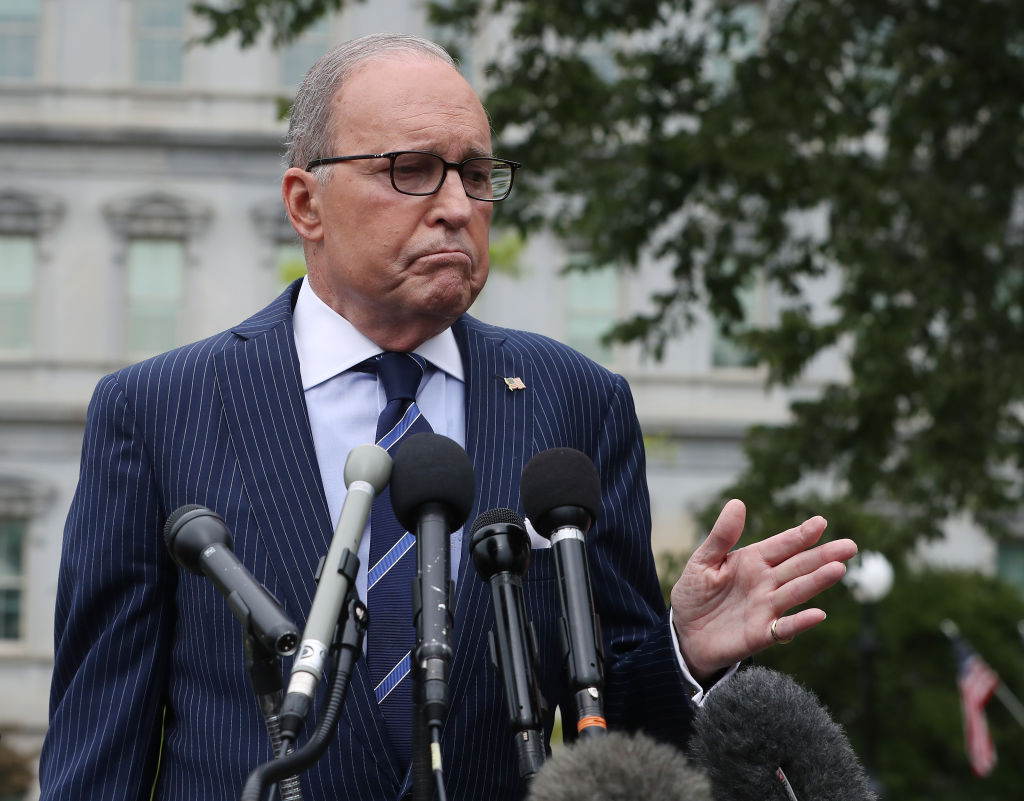The White House is reportedly eyeing a payroll tax cut to keep consumers spending amid Trump's tariff hikes


A free daily email with the biggest news stories of the day – and the best features from TheWeek.com
You are now subscribed
Your newsletter sign-up was successful
President Trump's next round of tariffs on Chinese imports will raise the average trade war cost for U.S. households to $1,000 per year, from $600, because the new duties will largely hit finished consumer goods, JP Morgan Chase researchers said Monday. The tariffs would largely negate any extra money consumers got from Trump's $1.5 trillion tax cut, and unlike with tax-subsidized farmers, "there is no simple way to compensate consumer," Dubravko Lakos-Bujas, JP Morgan's head of U.S. equity strategy, wrote to investors.
Consumer spending is the brightest spot in the U.S. economy right now, and facing slowdowns in manufacturing and business spending, and other warnings signs of a possible recession, the White House is now exploring a payroll tax cut to encourage Americans to keep their wallets open, The Washington Post and The New York Times report, citing several people familiar with the discussions. White House economic adviser Larry Kudlow is also reportedly advocating a capital gains tax cut, which would mostly benefit wealthy investors but, unlike the payroll cut, wouldn't require approval by Congress.
Payroll tax cuts, typically popular among Democrats because they benefit middle class workers, either drain money from Social Security and Medicare accounts or add to the ballooning deficit, already up 27 percent from last year. The White House said Monday that "cutting payroll taxes is not something under consideration at this time," despite Monday's White House discussions and an internal white paper exploring the idea.
The Week
Escape your echo chamber. Get the facts behind the news, plus analysis from multiple perspectives.

Sign up for The Week's Free Newsletters
From our morning news briefing to a weekly Good News Newsletter, get the best of The Week delivered directly to your inbox.
From our morning news briefing to a weekly Good News Newsletter, get the best of The Week delivered directly to your inbox.
Publicly, Trump administration officials have been dismissing the idea of a recession, but "Trump has sent mixed messages," the Post notes. He tweeted that the economy is "very strong," then specifically urged the Federal Reserve to cut already-low interest rates by 100 basis points and pump more money into the economy through "quantitative easing." Cutting benchmark interest rates to 1.25 percent would give the Fed "little additional wiggle room to maneuver if a full-fledged recession began," the Post reports, and quantitative easing is "an extreme step that central bankers take when they are trying to urgently address a slumping economy."
A free daily email with the biggest news stories of the day – and the best features from TheWeek.com
Peter has worked as a news and culture writer and editor at The Week since the site's launch in 2008. He covers politics, world affairs, religion and cultural currents. His journalism career began as a copy editor at a financial newswire and has included editorial positions at The New York Times Magazine, Facts on File, and Oregon State University.
